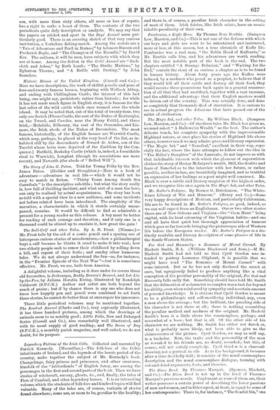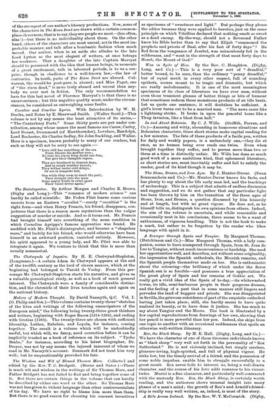The Risen Dead. By Florence Marryat. (Spencer, Blackett, and Co.)—The
Risen Dead is not up to the level of Florence Marryat's previous novels. Unpleasant as some of them are, their writer possesses a certain power of describing the lower passions of men and women, and in this respect, at least, is equal to some of her contemporaries. There is, for instance, "The Scarlet Sin," one
of the strongest of our author's literary productions. Now, some of the characters in The Risen Dead are drawn with a certain common- place cleverness; that is to say, they are people we meet—(too often, alas !)—but there is no individuality about them. On the other hand, others of the characters are most unreal, act in the most im- probable manner, and talk after a bombastic fashion when much moved. Our author, when in an aside she alludes to the late Lord Lytton as the most elegant of writers, at once betrays her weakness. That a daughter of the late Captain Marryat should be possessed with the idea that human beings, in moments of a groat excitement, talk in laboured periods, is to us a sur- prise, though in obedience to a well-known law,—the law of contraries. In truth, parts of The Risen Dead are absurd. Cul- warren, the would-be poet-peer, is absurd ; and Miss Paget, one of "the risen dead," is more truly absurd and unreal than any- body we ever met in fiction. The only recommendation we have for this last novel of Florence Marryat's is that there is no unsavouriness ; but this negative quality must, under the circum- stances, be considered as outweighing some faults.























































 Previous page
Previous page